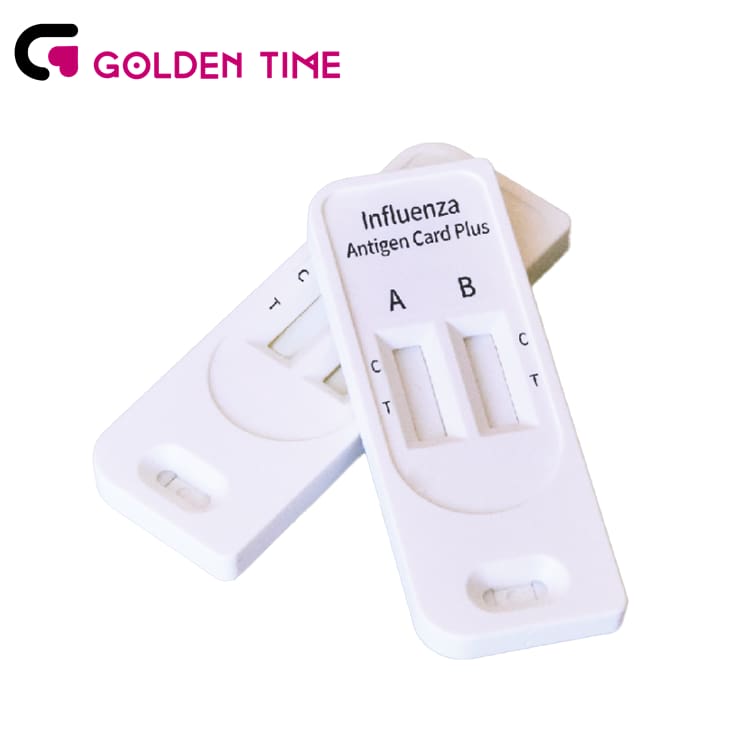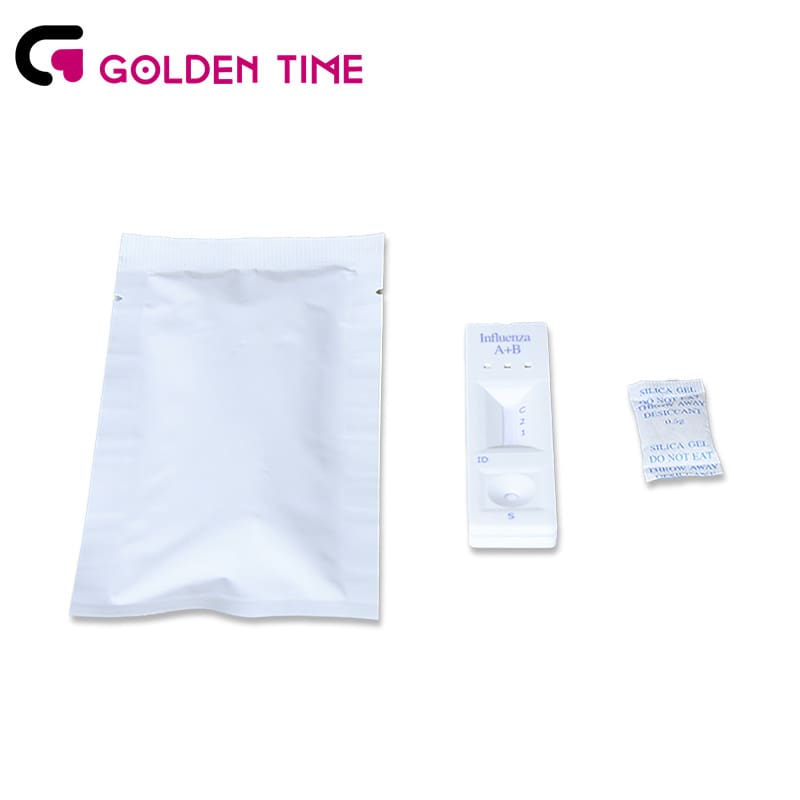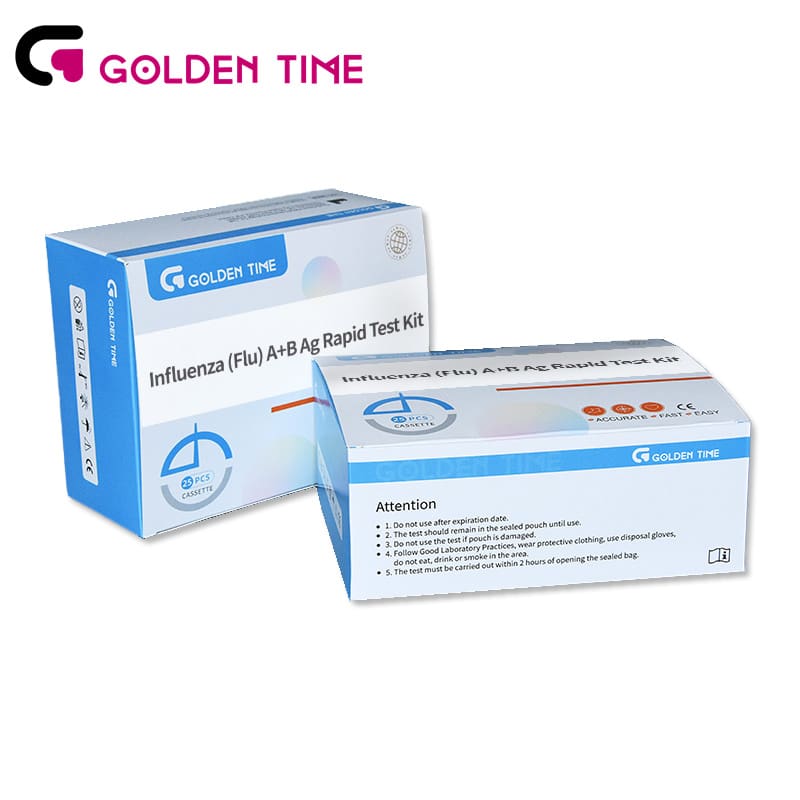ກ.ກ. . 20, 2025 21:33 Back to list
Rapid Influenza A/B Antigen Test Kit | Fast & Accurate Diagnostic Solution
Gaobeidian PRISES Biotechnology Co., Ltd
Global leader in rapid diagnostic solutions
Phone
0086-(0)312-2930588
export@prises.cn
Mobile
0086-15910623759
Address
No.136, Shiji West Road, Gaobeidian City, 074000, Hebei Province, P.R. China
Product Overview
The Flu A B Influenza Virus Ag Diagnostic Rapid Test Kit is an in vitro diagnostic test utilizing immunochromatographic technology. Designed for qualitative determination of influenza type A and type B virus infection, this test delivers results in just 8 minutes using nasopharyngeal swab specimens from symptomatic patients.
As the demand for accurate influenza a/b antigen test solutions grows worldwide, our influenza a/b antigen test kit provides healthcare professionals with a reliable tool for rapid diagnosis. The importance of distinguishing between Influenza A and B strains is critical for appropriate patient management and epidemiological surveillance.





Industry Trends & Market Analysis
The global market for rapid influenza diagnostic tests is experiencing substantial growth, with an estimated CAGR of 6.8% from 2023 to 2030. This expansion is driven by increased influenza prevalence, technological advancements in test kits, and growing awareness of early diagnosis.
Our Flu A B Influenza Virus Ag Diagnostic Rapid Test Kit is developed in response to the increasing need for point-of-care testing solutions that deliver laboratory-quality results in clinical settings, pharmacies, and even at home.
Technical Specifications & Performance Data
Understanding the technical parameters is essential for selecting the right diagnostic solution. Our influenza a/b antigen test kit offers exceptional performance metrics:
Performance Comparison
| Parameter | Our Product | Industry Average |
|---|---|---|
| Detection Time | 8 minutes | 10-15 minutes |
| Sensitivity (Influenza A) | 96.4% | 90-95% |
| Sensitivity (Influenza B) | 95.2% | 88-94% |
| Specificity (Overall) | 98.7% | 96-98% |
| Storage Temperature | 2-30°C | 2-8°C |
| Sample Type | Nasopharyngeal Swab | Varies |
Application Scenarios
The Flu A B Influenza Virus Ag Diagnostic Rapid Test Kit is designed for versatility across multiple healthcare settings:
Hospital Settings
Emergency departments utilize our influenza a/b antigen test for rapid triage of patients with influenza-like symptoms, enabling appropriate isolation decisions and treatment plans.
Clinics & Outpatient
Primary care physicians benefit from immediate results that inform antiviral prescription decisions during peak influenza seasons.
Long-Term Care
Nursing homes use our tests for early detection and containment of outbreaks among vulnerable populations.
School Health Programs
Educational institutions implement our influenza a/b antigen test kit for rapid screening to minimize absenteeism.
Professional FAQ
A: Our test kit contains test cassettes, disposable sterile swabs, extraction buffer tubes, tube holders, and comprehensive instructions. Each component is quality-controlled for maximum reliability.
A: Store the unopened kit at 2-30°C in a dry environment. Avoid freezing and exposure to direct sunlight. The kit remains stable for 24 months from the manufacturing date when properly stored.
A: The test uses colloidal gold immunochromatography. The test strip contains monoclonal antibodies specific to influenza A and B nucleoproteins. When viral antigens are present, they bind to gold-conjugated antibodies and form visible lines on the membrane.
A: We implement a rigorous multi-stage QC process: raw material screening, in-process controls, and final product validation. Each batch undergoes performance testing against reference samples to ensure clinical accuracy.
A: The test is designed for CLIA-waived complexity. Healthcare professionals can perform it after reviewing the included instructions. We also provide online training resources through our website.
A: Our antibody selection targets highly conserved viral regions. We continuously monitor circulating strains and update our antigen targets when necessary. This commitment ensures sustained detection performance.
A: While treatment protocols are similar, distinguishing the type has epidemiological importance and can inform prognosis. Influenza A is associated with greater severity and pandemic potential, while Influenza B typically causes milder but more prolonged symptoms.
References & Expert Endorsements
The clinical value of rapid influenza diagnostic tests has been validated in numerous peer-reviewed studies:
- Journal of Clinical Virology: "Comparative performance of antigen-based influenza diagnostics"
- Influenza Research Reviews: "The evolving landscape of rapid influenza diagnostics"
- Journal of Clinical Microbiology: "Point-of-care testing for respiratory viruses"
- CDC Influenza Diagnostic Guide: "Rapid Diagnostic Testing for Influenza"
- WHO Diagnostic Report: "Diagnostic approaches for influenza viruses"
This is the last article
-
Rapid Influenza A/B Antigen Test Kit | Fast & Accurate Diagnostic Solution
NewsJul.20,2025
-
Dengue NS1 Rapid Diagnostic Test Kit
NewsMar.07,2025
-
Dengue NS1 Rapid Diagnostic Test Kit
NewsMar.07,2025
-
Dengue NS1 Rapid Diagnostic Test Kit
NewsMar.07,2025
-
Transferrin Rapid Test Cassette Tumor Marker TF Card
NewsMar.07,2025
-
Malaria Pf Pan Rapid Diagnostic Test Kit
NewsMar.07,2025

